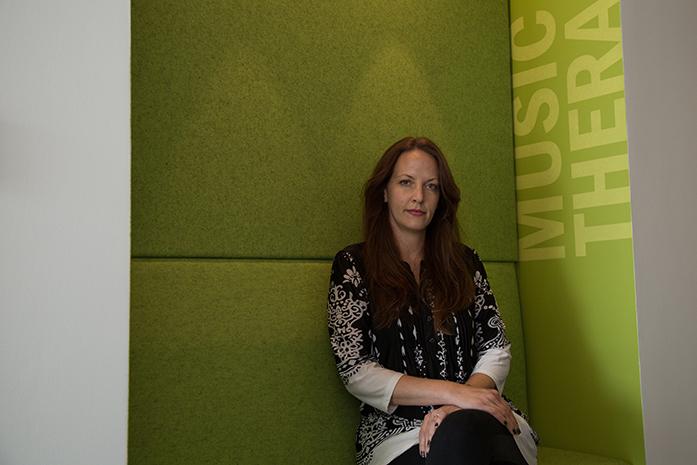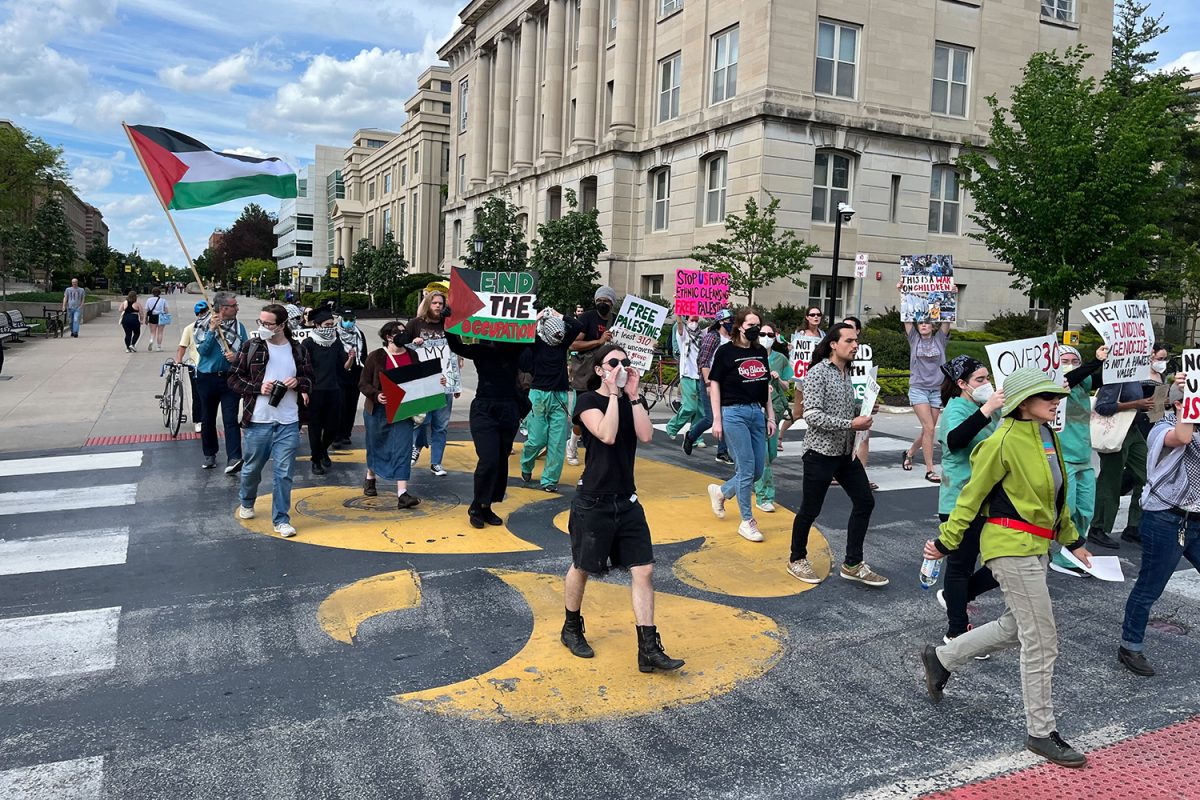UI researchers look into music therapy to ease the symptoms of Alzheimer’s disease.
By Rikki Laser
There is no cure for Alzheimer’s, but researchers at the University of Iowa are developing a method to relieve some of the symptoms through music therapy.
“There are studies that have shown it can trigger past memories in patients with dementia,” said Melissa Pence, the executive director for the East Central Iowa Chapter of the Alzheimer’s Association.
Music therapy, she says, is one of the few things that noticeably assist the patients.
“Music therapists work with individuals with Alzheimer’s in day programs, hospice, and nursing-home settings,” said Mary Adamek, director of the music therapy program in the UI School of Music. “We use live music to engage individuals with others, to stimulate reminiscence, to provide sensory stimulation, and to improve quality of life.”
Alzheimer’s disease is one of many different forms of dementia, which is a larger umbrella term for more than 10 different types of diseases. Of these diseases, Alzheimer’s is the most prevalent, said Alaine Reschke-Hernández, a UI graduate teaching assistant in music therapy.
“It’s progressive — some forms of dementia are not — so it does get worse over time,” Reschke-Hermández said. “People lose more and more skills. The hallmark of it is memory loss. They lose the most recent memories first and then it goes back in time.”
In Reschke-Hernández’s study, participants, who were in the early stages of Alzheimer’s, listened to pieces of music and reacted to them. Beforehand, they generated a list of songs that made them feel happy or sad. They were then introduced to this music and, after a delay, rated their emotions and answered a few questions.
“They give us the music lists before they come in, and then we compile recorded music, so the study is actually looking at their responses to music, whereas in a music-therapy setting, I’d be using live music in a group or a one-on-one situation,” she said.
There are currently not enough participants to make any conclusions, and the lab is still actively recruiting. Once completed, however, the research may have an effect on diseases beyond Alzheimer’s.
“The big picture is not just continuing to examine how we treat individuals who have memory disorders; there’s a really great quotation from someone who said, ‘You might forget what someone said, you might forget [what someone]did, but you will not forget how someone made you feel,’” she said. “I think that sums up this line of research quite well — it says that even if we can’t remember [what someone did], we still have that sustained experienced of emotion.”
The research may not only change how doctors treat Alzheimer’s patients but also how they treat those with other memory issues.
“Depending on the results of this, I think in general the line of research could help change for the better how we treat people who have memory disorders,” she said. “I think that it could help point us in the right direction for more scientific support for using music as a way to affect how somebody feels, perhaps the quality of life. The way we feel and our quality of life are connected.”







